I Work to Buy Art
Born and raised in the sunny valleys of California, Celesta Hodge is a young contemporary collector with a background in cryptocurrency trading. She was introduced to the arts as a mere child by her parents, taking her to exhibitions and tours of their artist friends’ studios before she could walk. Her mother grew up in a Frank Lloyd Wright house and dabbled in the arts and her father is an architect. In addition to crypto trading, Celesta has had a successful career in modeling. Whenever she has a successful trading day or books a modeling job, she purchases art. She only has one motto: I work to buy art.
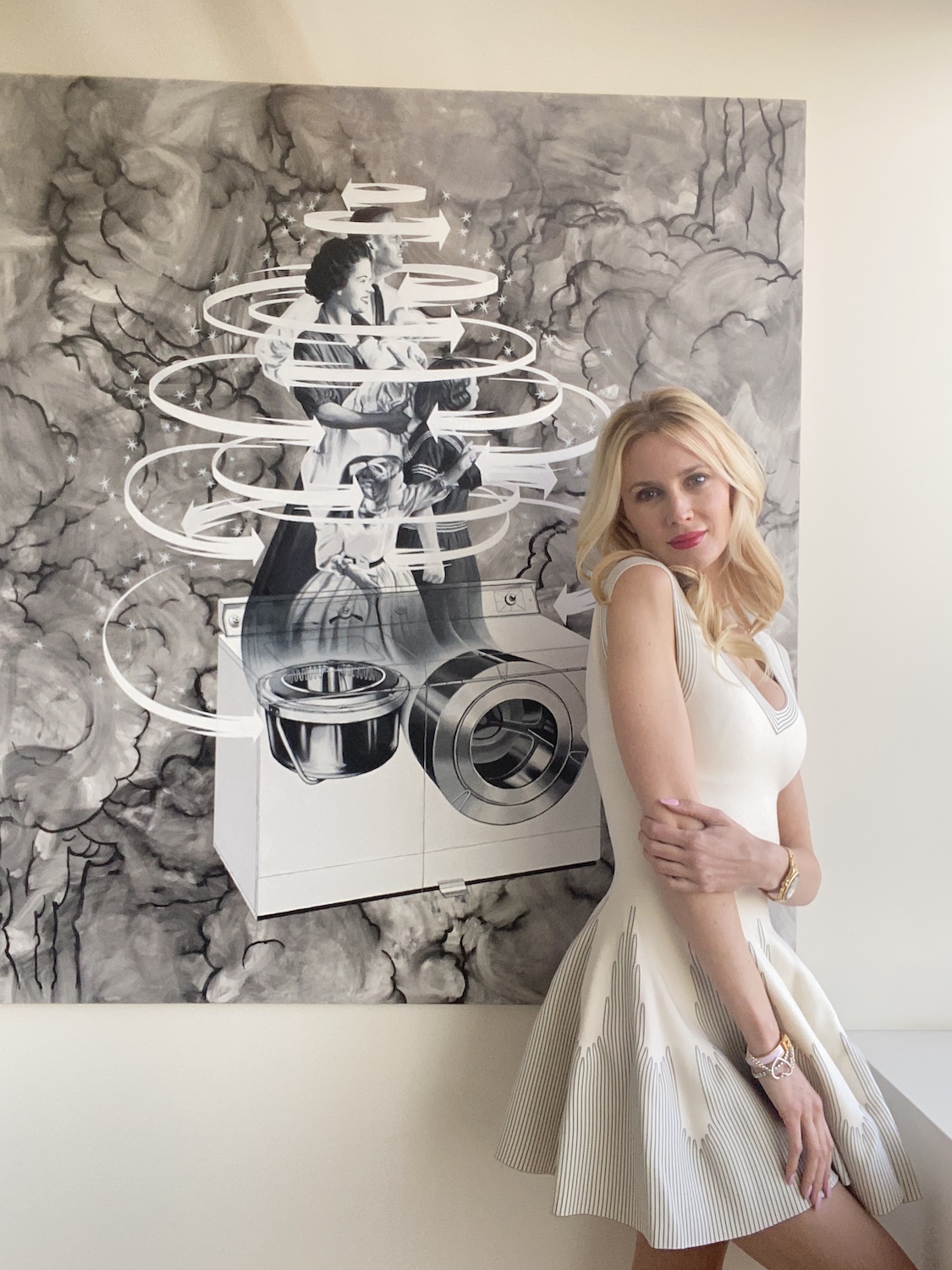
Collecting
What made you want to start collecting art? What is the main motivation behind you collection?
As a model, I came through the fashion world. I’ve been involved in the fashion industry since I was very young. Fashion is a form of art, so it was a natural progression for me to be attracted to art. The motivation behind my collection is very personal— a timestamp of significant moments in my life. For example, I was going through a rough breakup and the irony in a Jim Shaw piece resonated with me, depicting the quintessential American dream. It was everything I felt I wanted at that moment. Feelings are fleeting, artwork is tangible and permanent. I may have forgotten that guy (what was his name anyway?) and why we broke up, but the feeling I felt when I acquired that piece is with me forever. It’s an intimate thing to share works with people that respect and understand the power of art. Going in depth with each artist and learning their story behind each piece has brought me some of my closest and lifelong friends.

What is your focus regarding the artists in your collection?
I focus mainly on contemporary artists, but all the pieces have to speak to me. It’s very instinctual. I know from the first few moments if a piece captivates me. Mike Kelley‘s pieces bring me so much joy. I love how he tackles difficult subjects with such playfulness and humor. Tracey Emin had a very rough childhood, yet her work is beautiful and powerful. The artist’s stories often fascinate me as much as their work. It’s a reflection of what’s going on in society or bubbling under the surface of our lives. I love beautiful things, and expressing myself through the pieces I collect is an extension of that.
Are you more interested in emerging or renowned artists, local or international?
Both, but it always comes back to what hits me at the core of my being as a collector. My collection is diverse and eclectic. I think people are often surprised when they see it in its totality. It’s completely unexpected.
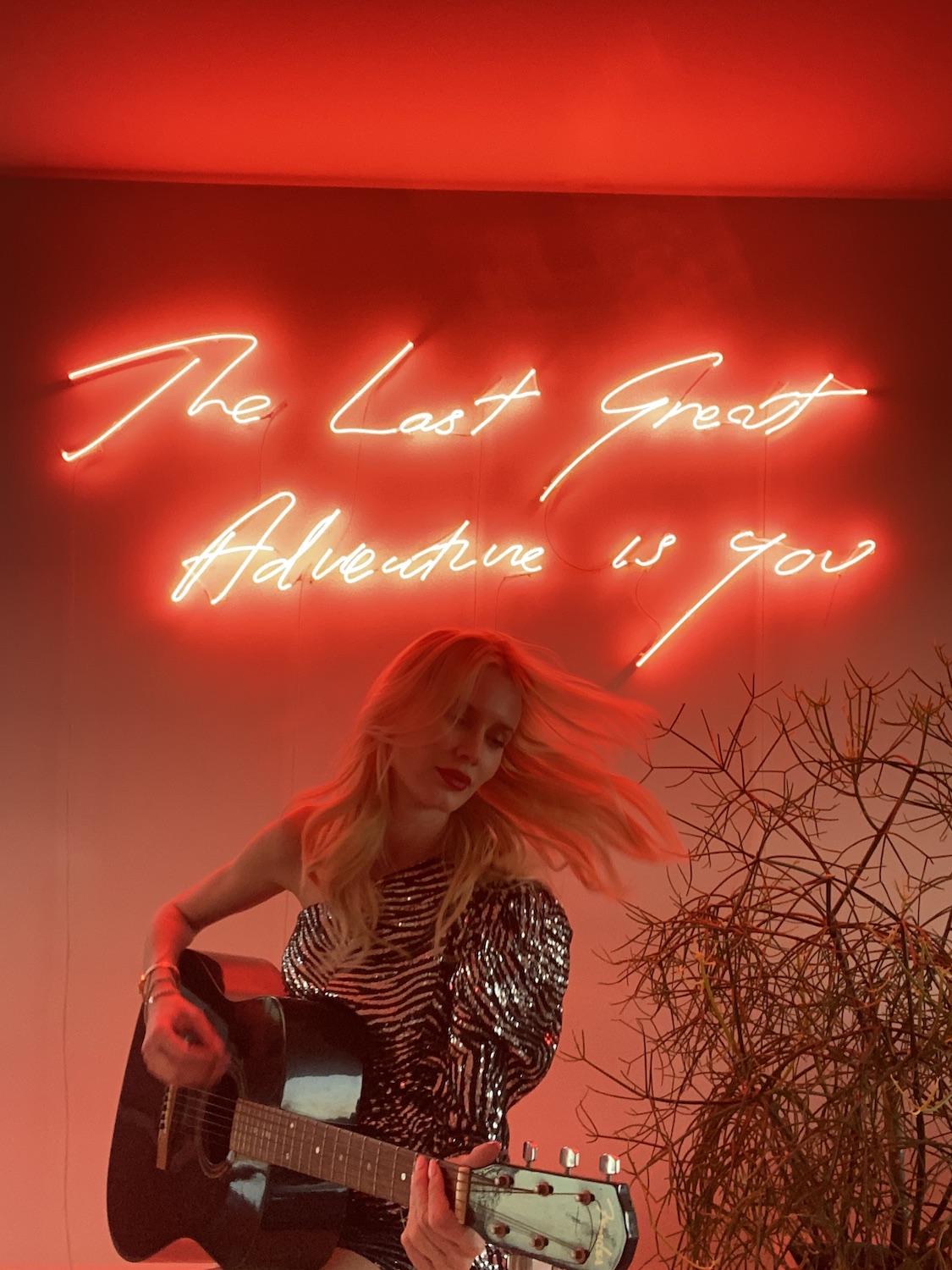
What was the first artwork you purchased? What was the latest?
“The Last Great Adventure Is You”, a Tracy Emin neon was my first piece. It connects with me because I believe our life story is our greatest masterpiece. The only thing we can take with us is memories and even that’s disputable. Ultimately, I want my collection to be my legacy. Even though it’s not my work, there’s a little piece of me in each piece of art I acquire.
The last piece was “Me Mexico” an Ed Ruscha. During the pandemic, Mexico has been my refuge. Give me a nice chilled tequila (neat), a cabana on the beach, some Ed Ruscha, and I’m like “Pandemic? What pandemic?”
How many artworks do you have in your collection?
I have 80 works, and my collection continues to grow. Last year, I bought 30 pieces.
It’s an endless process. I connect with a piece, I buy it. I never want to miss an opportunity to purchase something I love and regret it later that I didn’t acquire it. You always remember the one that got away.
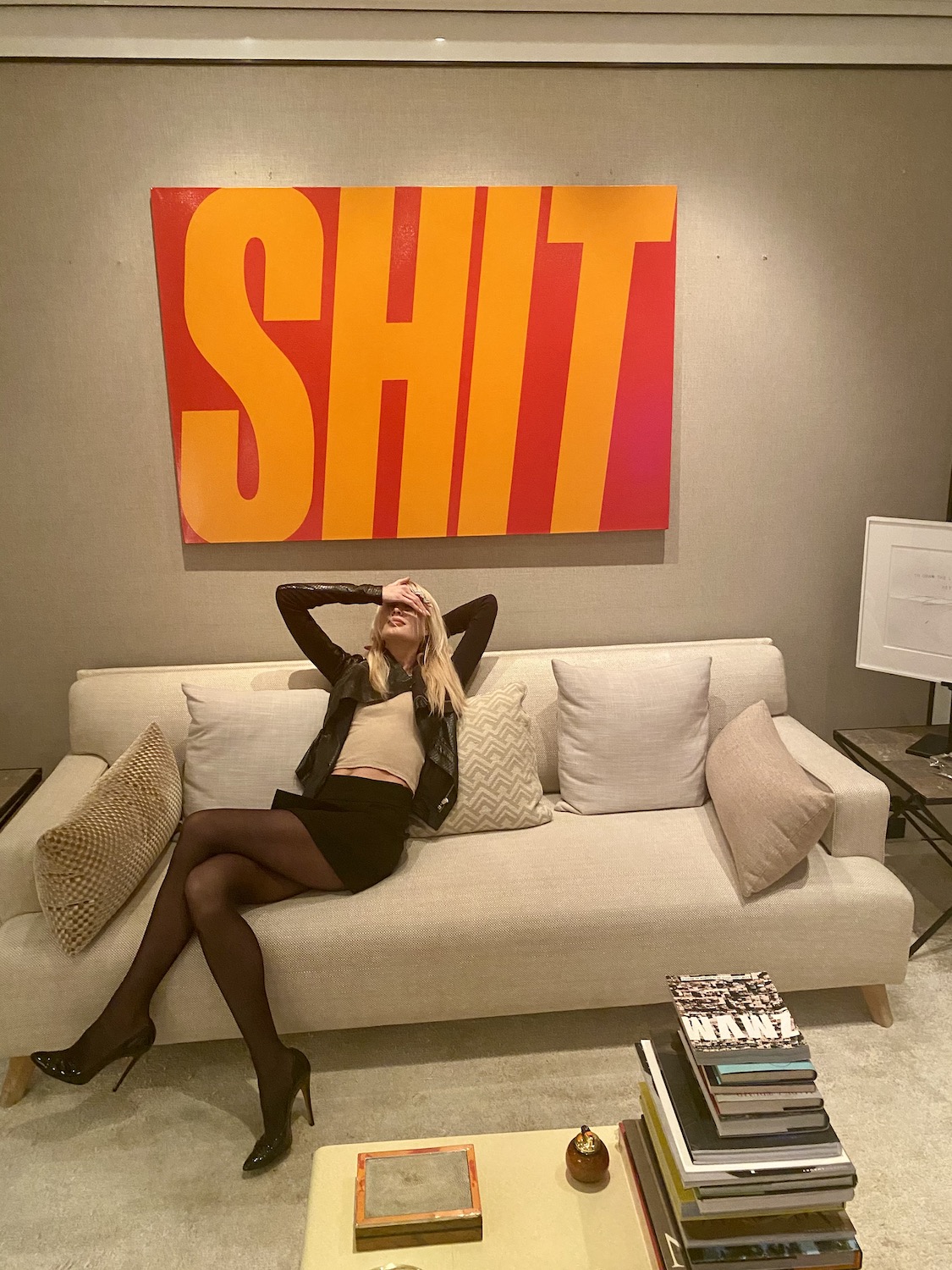
Where do you display your collection?
I display works on rotation in my homes in California. The rest are a bit scattered around the globe. When this pandemic is over, I’m looking forward to hopping on a plane and visiting some of them. #vaccinationgoals
Have you ever presented your art collection publicly?
Not formally, other than holding private functions. I am not opposed to public displays but would have to have the right timing and venue. When I do create my first public display, I want to do justice to my collection. It will definitely be an experience and an event to remember.
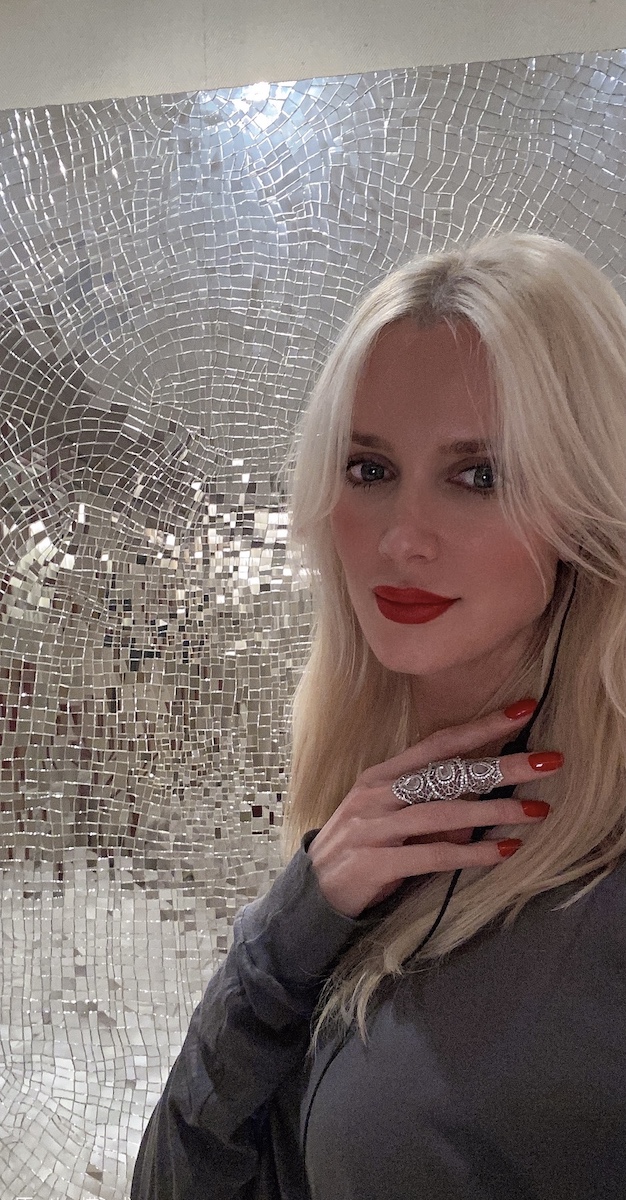
Is there any kind of artwork that can make you write a cheque without any consideration?
Drawing on my training and finance background, I do put careful consideration into what I buy. Obviously, I love buying works that appreciate in value, but I also buy works that solely bring me joy knowing that they may never go up monetarily. That said, Barbara Krueger or Andreas Gursky could easily inspire me to buy without any consideration.
What is your most treasured artwork?
That’s a tough question. It’s between my Urs Fisher and Charles Ray sculptures. They both bring me so much pleasure. You know that feeling of butterflies when you first meet that special person and you can’t wait to see them again? That’s how I feel when I look at these. It’s intense, mind-bending, infatuation, except they don’t buy me dinner!
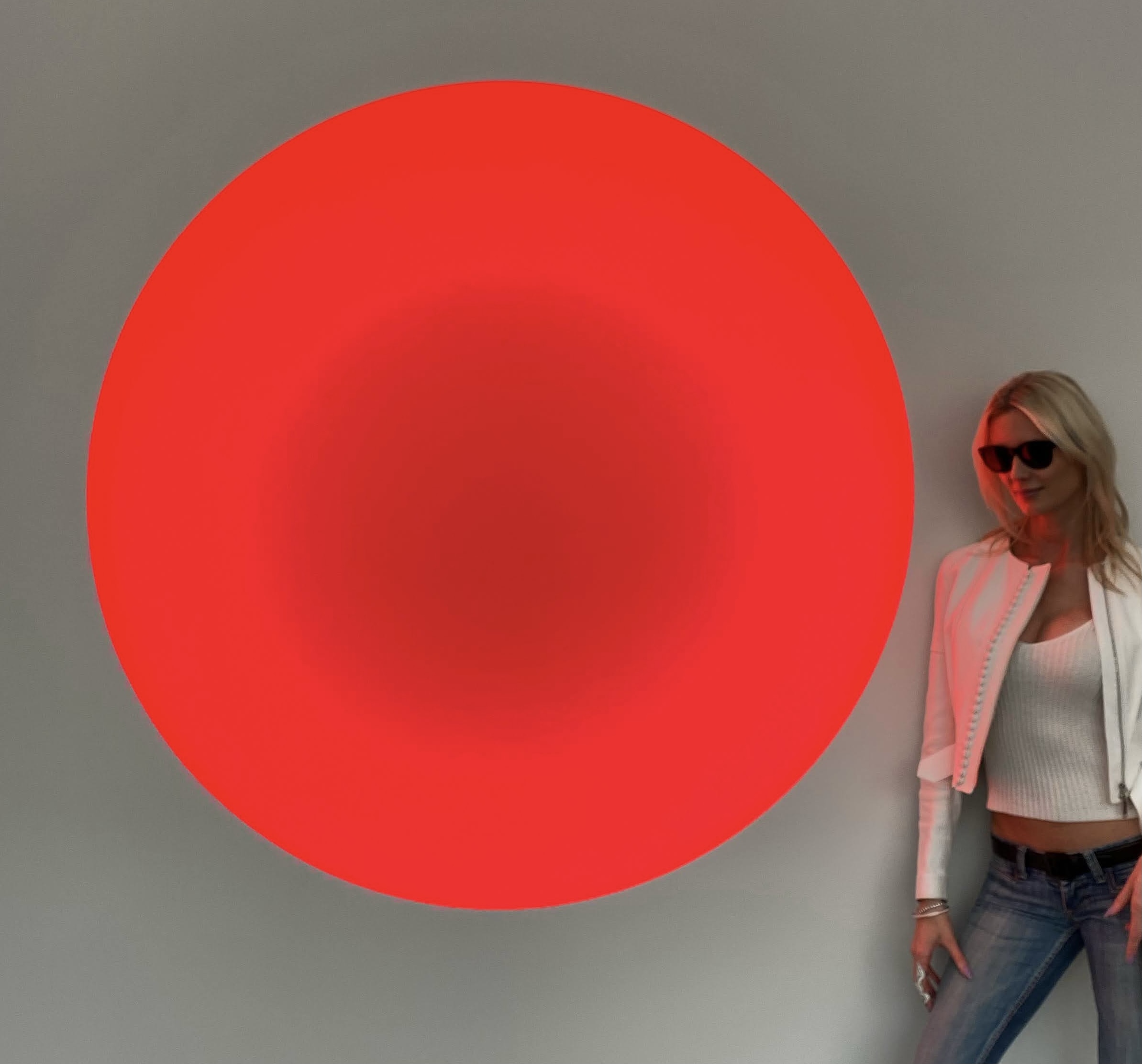
How important is it for you to meet the artists who created the artwork?
Getting to know the artist personally is really the cherry on the sundae of my life. I’ve formed some incredible friendships and had unforgettable experiences and conversations with some artists. I was fortunate enough to spend the day with Robert Graham when he did my portrait before he passed away. Every time I see that piece, I remember his warm charm and fatherly candor. These are the memories that will remain with me forever. Some of the artists I collect are in their 80s and 90s and have such an fascinating history. I would love to have the opportunity to meet Claes Oldenburg in person one day. That would be a dream come true.
Do you rely on art advisors? How do you make your decisions concerning acquisitions?
I run acquisitions by my dear friend Eugenio Lopez. He is responsible for igniting my desire to collect in the first place. I blame him for my art addiction. I also look up to Jeffrey Deitch who is a wealth of knowledge and a very shrewd advisor. I frequently buy from Patricia Marshall and greatly appreciate the long reading lists which she makes me imbibe.
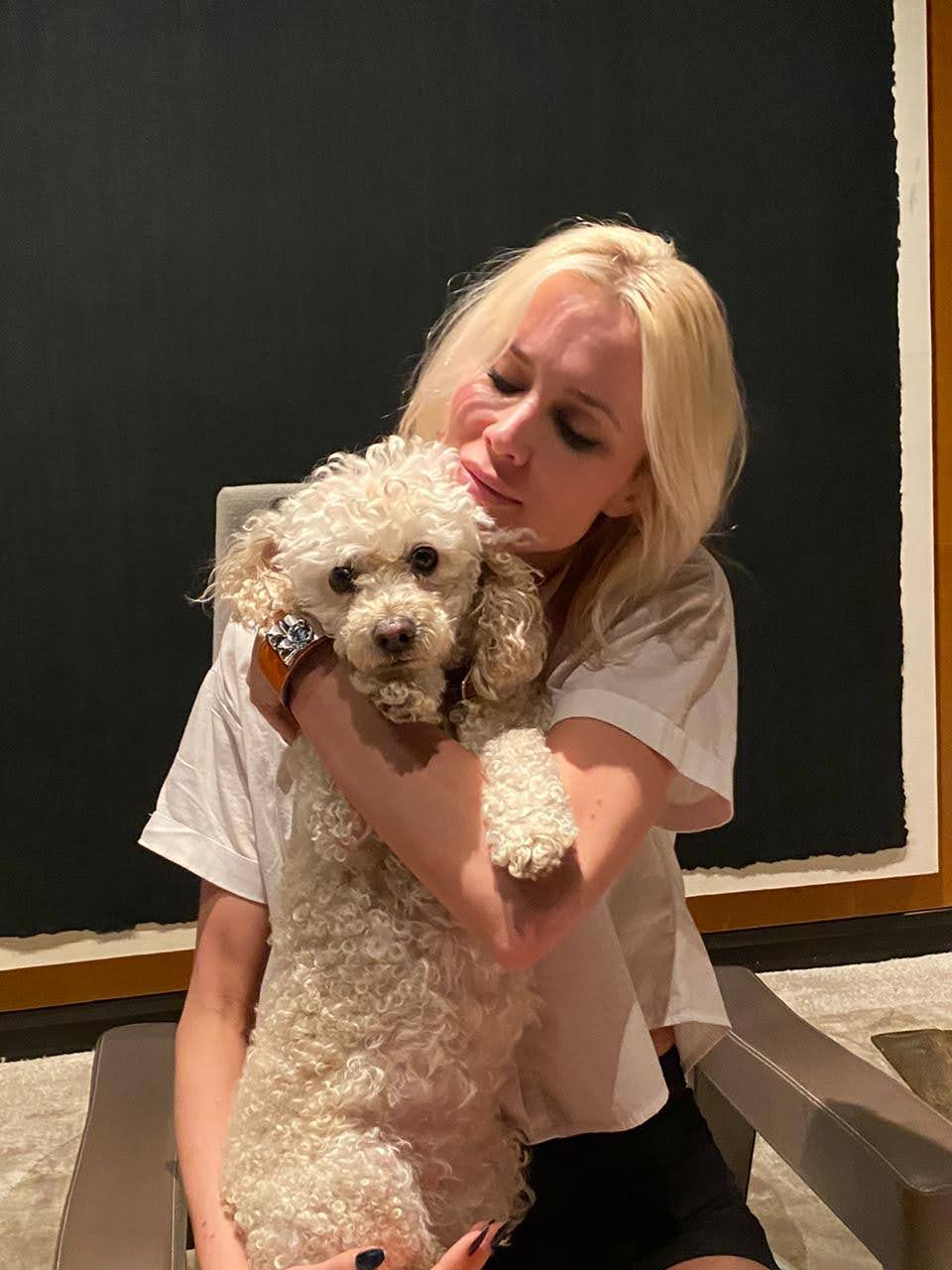
What is your art-world pet peeve?
I feel that art should be more accessible. It’s proven that when you look at things in a visceral way, new neural pathways open up in your brain. Art is not only to hang on the wall but there to help us understand the power of self-expression. Art, music, and film help us expand our consciousness and break down old ego structures. They’ve done studies and discovered that exposing groups of children to art and music creates emotional intelligence and higher empathy. Who doesn’t need that? Art also humanizes us without the concepts and judgments that we put on ourselves and others. It is the great equalizer.
How does your background in crypto influence your perception of the art market? What new insights would you have on the art market?
Cryptocurrency is only going to get stronger as the global economy continues to shift and the US dollar deflates. If you know what to buy, art is definitely better than cash. I believe crypto will become more relevant in the art market.
Can you name three emerging artists which should be on our watchlist?
Jeronimo Ruedi, Charles Derenne, Daniel Dugan, and Ana Segovia, just to name a few. All have very compelling messages they want to convey, and they courageously give a part of themselves in every piece of their work… and that is invaluable.

A selection of artists Celesta collects:
Charles Ray
Claes Oldenburg
Ed Ruscha
Tracey Emin
Urs Fischer

No comments:
Post a Comment